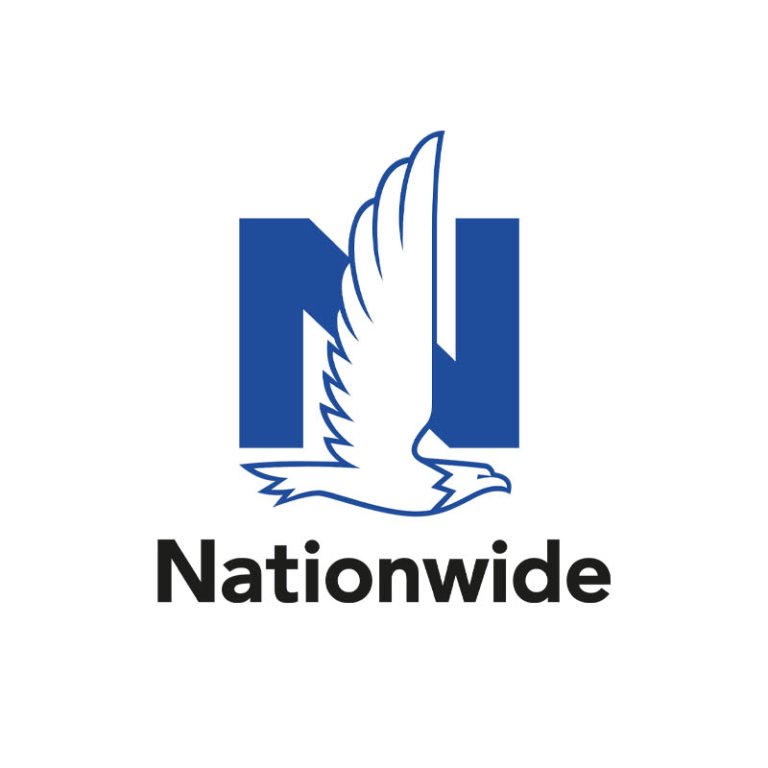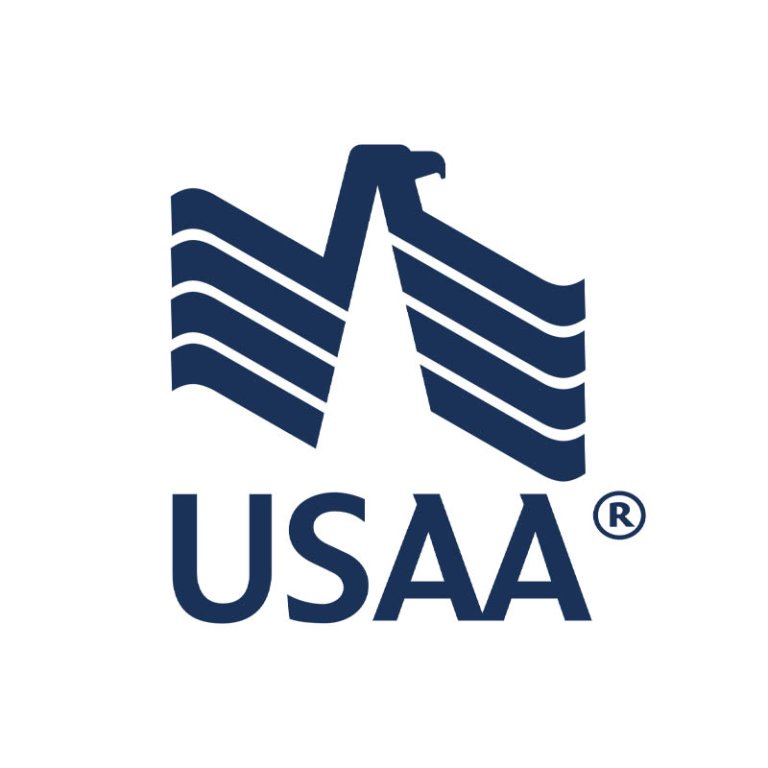
We may earn revenue from the products available on this page and participate in affiliate programs. Learn More ›
Purchasing a home is a major investment, so it’s wise for homeowners to do what they can to protect it. Unfortunately, it’s impossible for a homeowner to predict how and when their home could sustain damage, whether it’s from a burst pipe, a fire, a storm, or another event. Having a policy from one of the best homeowners insurance companies can provide homeowners with the coverage they need to restore their damaged home to good condition without having to drain their savings.
When shopping for homeowners insurance coverage, homeowners will want to look for the most comprehensive coverage they can afford from a quality company they can trust. The best home insurance company for each homeowner will depend on their individual needs and preferences. While some people like to work directly with an insurance agent to find their ideal policy, others prefer to research and purchase their homeowners insurance policy online. Customers may want to bundle their policy with other insurance products (such as auto), or they may want to purchase specific add-on options to get the right amount of coverage for their unique needs. As such, it’s imperative for homeowners to carefully research the best home insurance companies so they can find the right one for them. The companies featured in this roundup have proven themselves as some of the best homeowners insurance companies out there, providing a good starting-off point for homeowners looking for a policy.
- BEST OVERALL: State Farm
- RUNNER-UP: Amica
- BEST FOR HOME AND AUTO: Allstate
- BEST FOR BUNDLING: Nationwide
- BEST DIGITAL EXPERIENCE: Lemonade
- BEST FOR DISCOUNTS: NJM
- BEST FOR MILITARY MEMBERS: USAA

What to Consider When Choosing the Best Homeowners Insurance
There are several factors for homeowners to consider when researching the best homeowners insurance companies. For example, homeowners may want to ask the following questions:
- What does homeowners insurance cover with a standard policy?
- Do providers offer add-on policies to increase coverage?
- Can customers bundle homeowners insurance with their other existing insurance policies?
- Does the company have the financial strength to guarantee its policies?
- Do home insurance companies provide coverage in the customer’s location?
- Does the company have a reputation for providing great customer service?
These are just a few examples of questions homeowners may have when shopping for the best homeowners insurance. The following sections will explain these factors in more detail to aid homeowners in their understanding of what to look for when shopping for homeowners insurance.
Coverage Area
One of the key factors insurance companies look at when pricing a homeowners insurance policy is the property’s location. Not every homeowners insurance company will offer coverage in every state—and in some cases, availability will vary by ZIP code—so homeowners will want to first check that the policy they’re interested in is available where their home is located before proceeding with a quote. If they find that the company they’re considering doesn’t offer coverage in their area, they can cross it off the list and move onto the next option.
Homeowners insurance for properties in major cities often costs more than policies covering rural homes. One reason for this is that homes in big cities generally have higher property values, so repairing or rebuilding the home is likely to be more expensive for the insurance company. That expense is passed onto the consumer in the form of higher premiums.
Additionally, homeowners who live in areas known for natural disasters such as tornadoes, hurricanes, or earthquakes could pay higher rates since they face a greater risk of property damage (and homeowners may need to take out additional coverage if they want to be able to make a claim following an earthquake). Some insurers may decline to offer coverage in certain high-risk areas (such as Florida) entirely. Homes located in high-crime areas that are at higher risk for theft may also be more costly to insure than those in areas with low crime rates.
While searching for a homeowners insurance provider, residents of certain states may find homeowners insurance options to be more limited compared with other areas of the country.
- Editor’s note: As of 2024 several insurance companies, such as Allstate, Nationwide, USAA, and State Farm, have dropped their property insurance offerings in California, and other providers could follow suit. Similarly, some providers are limiting new policies in Florida.
Coverage Amount
Coverage limits on a homeowners insurance policy can vary from one company to another and across different types of coverage. Homeowners insurance typically includes dwelling, personal property, and personal liability protection among its standard terms, each of which will provide coverage up to a certain limit. For instance, personal property coverage limits may be based on a percentage of the policy’s dwelling coverage amount. Other forms of insurance included with a homeowners insurance policy, such as loss of use and other structures coverage, will likely adhere to specific coverage limits as well. As such, it’s important that homeowners check on these caps when selecting an insurance company, especially if they know they need more insurance to protect their home, their belongings, or their finances.
Policy Options
Beyond the standard forms of coverage that are included with most homeowners insurance policies, customers may also have the option to purchase endorsements that expand coverage to include more losses. Add-on options, including both the type of endorsement and the amount of coverage available, will depend on the insurance provider. Also, some endorsements such as earthquake protection may only be available in certain locations. The best insurance companies for home coverage may offer add-on policy options that can include:
- Water backup protection, in case of overflowing drains, sewer backups, and other causes of water damage not typically covered by a standard homeowners insurance policy.
- Scheduled personal property coverage, which insures certain high-value items (artwork, jewelry, musical instruments, sports equipment, etc.) beyond a policy’s standard terms of coverage.
- Identity theft protection, in case the policyholder falls victim to a data breach, identity theft, or fraud and requires remediation services.
- Earthquake coverage, which can protect homes situated in areas at high risk of seismic activity from damage directly caused by ground tremors.
- Sinkhole coverage, in the event that the home or personal property sustains sinkhole damage that would otherwise not be covered under the terms of a standard homeowners insurance policy.
Deciding which, if any, add-ons are worth purchasing may depend on the policyholder’s location, as some endorsements may be more useful for certain circumstances that are more likely to occur in some parts of the country but not others—earthquakes, sinkholes, and flooding water, for instance. By taking advantage of endorsements, homeowners can expand their insurance policies to better suit their needs.
Insurance Premiums
Cost is a major consideration when homeowners are deciding on an insurance provider, and shoppers will likely find that insurance premiums can vary quite a bit from one company to another. Rates are based on a wide variety of factors, including the size, age, and condition of a home; the policyholder’s claims history; local crime rates; any protective devices installed on the premises; and the home’s proximity to the nearest fire station. Coverage selections will also play a big part in determining insurance premiums, since prices will rise as customers add more coverage to their homeowners insurance policy. Because there can be so much variance in insurance rates across different companies, it’s worth shopping around and comparing prices with multiple insurance providers.
Quote Process
Not all home insurance quotes from every provider will be the same. Each insurance company looks at a number of factors such as the age, location, and value of the home to determine how much a homeowners insurance policy will cost. To find the best rates, it’s important for homeowners to shop around and get a homeowners quote from multiple companies to compare and determine which one best fits their needs and their budget.
It’s recommended for customers to provide identical information to each company, preferably on the same day, to yield comparable homeowners insurance quotes. In addition, keeping the terms of the homeowners insurance policy—amount of coverage, deductible, add-ons, etc.—the same can provide a more accurate comparison.
Different companies also offer different methods of getting a homeowners insurance quote, whether that’s online, over the phone, or in person through an agent. The process of getting the best home insurance quotes may largely depend on what kind of experience a customer is looking for. Agents have extensive knowledge of available policies and can answer any questions that homeowners may have, but visiting a branch office may not be the most convenient solution for someone looking to get a quote quickly. In that case, customers may give preference to companies that offer a quick online quote process. However, they’ll want to keep in mind that they may get a more accurate quote by speaking to an agent rather than through an online quote tool since the agent can build a quote tailored to the customer’s precise coverage needs.
Claims Process
Filing an insurance claim can be stressful, especially following a major loss involving a fire, storm, or theft, among other perils. The best-rated homeowners insurance companies may be able to offer more streamlined claims processes that allow policyholders to quickly and easily submit a claim on a covered loss. There could be multiple ways to submit a claim, from going online and uploading documents to the customer’s dedicated account, to speaking with an agent over the phone and walking through the claim submission process step by step. Finding the right approach will depend on each homeowner’s individual preferences and whether they would prefer the convenience of a digital claim platform or the hands-on support of working directly with an agent.
Deductibles
Insurance deductibles refer to the amount of money that is deducted from a claim payout before funds are disbursed to the policyholder. There is a common misconception that policyholders need to pay their deductible out of pocket, but that’s not the case with homeowners insurance as the insurance provider will deduct the customer’s selected deductible from the total payout. Even so, deductible options can be an important factor to consider when choosing a homeowners insurance company as they may impact both the size of a future claim payout and the initial cost of coverage. Selecting a lower deductible will typically result in higher insurance premiums and vice versa. Finding the right balance between up-front costs and potential claim payouts will come down to each policyholder’s particular preferences and financial circumstances.
Additional Policies
While homeowners insurance covers the structure and contents of the home, there are some specific types of damage that will likely not be included in a standard policy. For instance, customers living in areas prone to floods may need to take out a flood insurance policy in addition to their homeowners policy. This is true, too, for areas known for earthquakes. Homeowners may want to add an earthquake endorsement to their coverage, or take out a separate earthquake insurance policy to make sure they are covered if disaster were to strike. Earthquake insurance covers the home and its contents if it’s damaged or destroyed by seismic activity.
Homeowners insurance also typically covers certain water damage (such as due to a burst pipe), but not from a sewer backup or drain overflow. In this case, customers will need to purchase water backup coverage to help pay for repairs. While some homeowners insurance policies will include loss of use as standard coverage, other policies may only offer this coverage as an additional endorsement. Homeowners can ask their insurance agent to provide specific coverage details and to determine whether this coverage is standard or additional.
Other add-on policies worth considering include homeowners insurance coverage to repair or replace the utility lines that run from the house to the street, coverage for repairs due to sinkholes, and coverage for scheduled personal property such as jewelry and antiques. Policyholders who conduct business activities on the property may need to purchase additional home business coverage. Identity theft coverage is another policy option that some companies offer as an endorsement. Finally, umbrella insurance can help cover liability above and beyond what the standard homeowners insurance policy covers.
Discounts
One of the most common ways for homeowners to get a discount on their insurance coverage is to bundle multiple policies under the same provider. Many insurance customers opt for one of the best auto and homeowners insurance bundles, which can save them a significant amount of money on their insurance rates in some cases. The exact amount will vary by the provider and the customer, so it’s worth homeowners asking their insurer for the specifics if they are interested in bundling their coverage.
Customers who don’t own a car may be able to get a multipolicy discount by bundling their homeowners insurance with other coverage such as umbrella insurance, term life insurance, or even boat or pet insurance. Bundling home and auto insurance or other types of policies also results in easier policy management because all policies are with the same company; this makes it easier for the policyholder to file a claim or ask questions because they have one point of contact for all their coverage rather than a different point of contact for each type of insurance.
Beyond bundles, insurance companies often offer other ways to save money on insurance for eligible policyholders. Discounts that may be available through the best homeowners insurance companies include:
- Claim-free
- New customer
- Customer loyalty
- Automatic payments
- Paperless billing
- Protective device
By taking advantage of opportunities such as the best auto and home insurance bundles, homeowners can reduce the total cost of coverage and save money on their homeowners insurance.
Actual Cash Value vs. Replacement Cost Coverage
Figuring out how much homeowners insurance policyholders need to cover replacement or rebuild and repair costs can be more complicated than it might initially appear. Homeowners insurance reimburses policyholders for property damage using one of two values:
- Actual cash value pays claims based on the depreciated value of the items, meaning what those items are currently worth, not what the policyholder paid for them or how much it would cost to replace them.
- Replacement cost coverage pays claims based on how much it would cost to repair or replace the home or an item based on current pricing, rather than a depreciated value.
Homeowners insurance policies with replacement cost coverage are typically more expensive because this type of coverage typically pays out a higher claim amount than actual cash value coverage. Homeowners will need to weigh the pros and cons of each type of coverage to determine which option is best for them.
AM Best Rating
When researching home insurance agencies, homeowners may want to look for companies that have good AM Best insurance ratings. AM Best is a credit rating agency that reviews insurance carriers to determine their financial strength and credit information. AM Best looks at a number of factors to evaluate each insurance company’s financial and risk management, and then assigns a letter rating between A++ (“Superior”) and D (“Poor”), with A++ being the highest rating. This information provides some insight into a company’s ability to pay out claims to its policyholders.
Although a good AM Best rating does not guarantee a company’s performance, it is an indicator of the service quality policyholders may expect to receive. Combining an AM Best rating with other tools such as Better Business Bureau ratings and customer reviews could help prospective customers decide whether a particular homeowners insurance company is right for them. However, it’s important for homeowners to remember that many times, customers are more likely to write a review after a negative experience than after a positive one, so a number of negative reviews for any particular company doesn’t necessarily mean that potential customers will have negative experiences. Potential customers can look to see whether the insurance companies have responded to negative reviews to try and resolve the issue; this shows that the company is willing to work with customers to make sure they are satisfied with their service.
Occasionally, a homeowner will come across an insurance company that doesn’t have an AM Best rating. This isn’t a reflection of the company’s financial standing; rather, the insurer may be new to the market or a small local provider that hasn’t yet been rated. Checking other financial stability rating agencies, such as Demotech, can provide customers with a well-rounded view of all the companies on their shortlist.
Complaints
Reviewing customer complaints for home insurance agencies can provide insight into how reliable the company is when paying out claims, as well as how responsive and supportive the company’s customer service may be. A good resource for checking customer complaints is the National Association of Insurance Commissioners (NAIC), which maintains a Company Complaint Index. Prospective customers can enter the insurance company name, type of insurance, and the state they live in to pull up the Complaint Index Report.
Another source to review customer satisfaction is J.D. Power, which uses consumer insights, data, and other tools to evaluate a company in relation to its competitors. Each year, it issues rankings through its U.S. Home Insurance Study, which lists the top homeowners insurance companies. Homeowners can use this as a resource when comparing different insurance providers.
At-a-Glance Comparison
| Coverage Area | Quote Process | Claims Process | Additional Policies | Multipolicy Discount | AM Best Rating | |
| State Farm | 47 states and Washington, D.C. | Online, phone, agent | App, online, phone, agent | Vehicle, life, umbrella, health, small business | Up to $1,073 per year | A++ |
| Amica | 48 states and Washington, D.C. | Online, phone, agent | App, online, phone, agent | Vehicle, life, umbrella, small business | Up to 30 percent | A+ |
| Allstate | 49 states and Washington, D.C. | Online, phone, agent | App, online, phone, agent | Vehicle, life, umbrella, small business, pet, travel | Up to 25 percent | A+ |
| Nationwide | 43 states and Washington, D.C. | Online, phone, agent | App, online, phone, agent | Vehicle, life, umbrella, pet, travel, dental, personal injury protection, identity theft | Up to 20 percent | A+ |
| Lemonade | 23 states and Washington, D.C. | Online | App | Vehicle, life, pet | Unknown | Not rated |
| NJM | 5 states | Online, phone | Online, phone | Vehicle, umbrella | Unknown | A+ |
| USAA | 50 states and Washington, D.C. | Online (for USAA members), phone | App, online, phone | Vehicle, life, umbrella, health, pet, travel | Up to 10 percent | A++ |
Our Top Picks
The best homeowners insurance companies for each individual homeowner depends on their specific needs. Some homeowners may want a company that checks most boxes—such as a large coverage area, strong financial rating, and user-friendly quote process—or some may prefer a company with a specific strength or area of expertise.
Best Overall
State Farm
Pros
- Prices typically fall below national average
- Generous home and auto bundle discount up to $1,073
- A++ AM Best rating
- User-friendly and easy-to-navigate website
- Excellent customer satisfaction ratings
Cons
- Limited discount opportunities
Specs
- Coverage area: 47 states and Washington, D.C.
- Quote process: Online, phone, agent
- Claims process: App, online, phone, agent
- Additional policies: Vehicle, life, umbrella, health, small business
- Multipolicy discount: Up to $1,073 per year
- AM Best rating: A++
Why It Made the Cut: In addition to being highly rated for financial strength and customer satisfaction, State Farm typically offers lower pricing than the national average.
State Farm touts that it offers great rates for everyone, and the company backs that up with pricing for its policies that is typically lower than the national average. To further reduce costs, State Farm homeowners insurance customers may have limited opportunities to take advantage of discounts, as the company only offers a few discounts on homeowners insurance policies. However, discounts on home and auto bundles are especially generous, and eligible customers could save up to $1,073 each year on multipolicy bundles. Customers are encouraged to work with a local agent to determine exactly which discounts they might qualify for.
State Farm has a strong history of being reliable—as evidenced by its A++ AM Best financial strength rating—and providing excellent customer satisfaction, per the NAIC. Plus, it offers other insurance products such as car, life, and umbrella insurance, so customers can work with one company for all of their insurance needs. State Farm’s website is also simple to use and navigate, helping customers quickly find online resources and policy information when necessary. This helps alleviate frustration at a time when emotions might be high, such as when the home has sustained damage and the homeowner is trying to make an insurance claim.
Runner-Up
Amica
Pros
- Awarded highest customer satisfaction rating by J.D. Power
- Standard credit card coverage for homeowners insurance policyholders
- Simple and efficient claims process
Cons
- Online quotes not available for all policies
Specs
- Coverage area: 48 states and Washington, D.C.
- Quote process: Online, phone, agent
- Claims process: App, online, phone, agent
- Additional policies: Vehicle, life, umbrella, small business
- Multipolicy discount: Up to 30 percent
- AM Best rating: A+
Why It Made the Cut: With a claims process that is simple and efficient, Amica has been awarded the highest customer satisfaction rating by J.D. Power.
Offering coverage nationwide (with the exception of Alaska and Hawaii), Amica ranks high for customer satisfaction on account of its reliable claims processes and good customer service. When purchasing homeowners insurance from Amica, customers may note that a standard homeowners policy also includes credit card coverage, which pays up to $500 if their credit cards or bank cards are stolen and used for unauthorized purchases. This coverage (which is typically an add-on with other insurers) helps give customers peace of mind that they would be protected if they found themselves in this unfortunate situation.
Although online quotes are not available for all policies in every location, Amica’s online experience excels in other ways. For instance, customers could get a discount for receiving policy information and billing statements electronically instead of by mail. Other potential discounts include multipolicy, autopay, loyalty, and claim-free discounts, which can help customers lower the cost of their insurance premiums. Amica’s straightforward claims process is a standout feature as well, allowing policyholders to file insurance claims with ease.
Best for Home and Auto
Allstate
Pros
- Ability to bundle multiple policy types
- Ability to customize plans by working with an agent
- Many free resources available on provider website
Cons
- Prices may be higher than those of competitors
Specs
- Coverage area: 49 states and Washington, D.C.
- Quote process: Online, phone, agent
- Claims process: App, online, phone, agent
- Additional policies: Vehicle, life, umbrella, small business, pet, travel
- Multipolicy discount: Up to 25 percent
- AM Best rating: A+
Why It Made the Cut: Allstate offers several bundling options in addition to standard home and auto policies, along with customizable policy terms and free online resources to help make the most of coverage.
Available nationwide, Allstate offers a lot of flexibility to customize homeowners insurance, particularly if customers are willing to work with an agent who can tailor a policy to their specific needs. Before talking with an agent, customers will also find free resources on the company’s website, so they can research the coverage needed ahead of time and make an informed decision on their policy terms.
Rates on Allstate homeowners insurance may be higher than those of its competitors, but the company’s multipolicy discount of up to 25 percent—available with home, vehicle, and umbrella insurance—could help to make those rates more affordable. Additional discounts for switching and staying with Allstate, setting up automatic payments, signing up before current coverage expires, and paying premiums on time could further reduce insurance costs.
Best for Bundling
Nationwide
Pros
- Ability to bundle multiple policy types
- Annual review and policy reassessment service
- Thorough and straightforward online quote process
Cons
- Mobile app is geared toward auto insurance
- Relatively low overall customer satisfaction rating by J.D. Power
Specs
- Coverage area: 43 states and Washington, D.C.
- Quote process: Online, phone, agent
- Claims process: App, online, phone, agent
- Additional policies: Vehicle, life, umbrella, pet, travel, dental, personal injury protection, identity theft
- Multipolicy discount: Up to 20 percent
- AM Best rating: A+
Why It Made the Cut: Thanks to a wide variety of insurance products, Nationwide offers up to 20 percent off when customers bundle their homeowners insurance with other coverage, which can make rates quite affordable.
Nationwide’s multipolicy discount of up to 20 percent can help homeowners save money on all their insurance needs, especially since the company offers several types of coverage like identity theft and personal injury protection. In addition, Nationwide’s On Your Side review gives customers the opportunity to review their policy with an agent once a year and check that they have the right coverage for their needs. This review could result in additional savings if customers find that they no longer need certain coverage options (or it could alert them to a much-needed coverage type that they don’t currently have).
Although Nationwide’s J.D. Power customer satisfaction rating is relatively low, the company offers a standout quote experience with its straightforward quote tool. Prospective customers can feel confident in the accuracy of their Nationwide homeowners quote when comparing different options. While the company’s mobile app is geared more toward auto insurance than homeowners insurance, customers can still file a homeowners claim in the app if they wish.
Policyholders also have the option to bundle multiple policies with their homeowners insurance, potentially reducing the cost of coverage while also making it easier to manage their insurance policies by working with one company.
Best Digital Experience
Lemonade
Pros
- Simple online quote and claims processes
- Ability to change coverage instantly via the Lemonade app
- Company has high social and environmental standards
- Up to 40 percent of unclaimed premiums donated to charity
Cons
- No option to speak to a live agent
- Limited extra coverage options
Specs
- Coverage area: 23 states and Washington, D.C.
- Quote process: Online
- Claims process: App
- Additional policies: Vehicle, life, pet
- Multipolicy discount: Unknown
- AM Best rating: Not rated
Why It Made the Cut: Lemonade is ideal for those who prefer to manage their homeowners insurance policies online, from getting quotes to filing and tracking a claim.
Offering homeowners insurance to residents in 23 states and Washington, D.C., Lemonade is tailor-made for those who like to skip the agent and handle their insurance purchase and management online. Although extra coverage options are somewhat limited, Lemonade does offer the basic policies that most customers need (such as vehicle and life insurance). To make policy management easier, customers can change their policy terms at any time with the company’s dedicated mobile app, with changes effective immediately.
Because Lemonade is a digital-focused company, live agent support is unavailable, but customers may prefer the convenience that comes with managing their insurance needs entirely online. For those who choose companies based on their civic and environmental commitments, Lemonade could be an ideal match. The company currently holds a B Corp Certification, indicating high ethical, social, and economic standards. In addition, the Lemonade Giveback program donates up to 40 percent of unclaimed insurance premiums left over at the end of the year to the nonprofit of the customer’s choice. Since 2016, the company has donated more than $8.1 million through the Lemonade Giveback program.
Best for Discounts
NJM
Pros
- Multiple unique discounts available
- Available add-on policy for mold, mildew, or dry rot
- Standard water backup coverage
- Standard replacement cost coverage for personal belongings
Cons
- Only available in 5 states
- Mobile app is geared toward auto insurance
Specs
- Coverage area: 5 states
- Quote process: Online, phone
- Claims process: Online, phone
- Additional policies: Vehicle, umbrella
- Multipolicy discount: Unknown
- AM Best rating: A+
Why It Made the Cut: NJM offers certain coverage that is not typically included with basic homeowners policies, so customers may be able to get the right coverage for their needs without purchasing add-on endorsements.
Available in Connecticut, Maryland, New Jersey, Ohio, and Pennsylvania, NJM prides itself on routinely providing great customer service. The company ranked No. 1 in customer satisfaction for auto insurers in the Mid-Atlantic region by J.D. Power.
NJM offers specialty coverage as part of its standard homeowners insurance, including water backup, ordinance coverage (which covers rebuilding a home to current building codes), and guaranteed replacement cost coverage. As a result, NJM customers may be able to reduce their insurance costs by getting expanded coverage without paying for extra endorsements. Customers may also lower their rates by taking advantage of several discount opportunities, including discounts for installing smoke detectors, impact-resistant window panes, and backup power supplies.
Although NJM’s mobile app only supports auto insurance, customers can still manage their homeowners insurance policies online easily. The company stands out by offering the option of adding coverage for damage due to mold, mildew, or dry rot, which is not a typical add-on policy for this type of insurance. This way, customers can expand their coverage to better meet their homeowners insurance needs, which in turn gives them peace of mind that they’ll be covered if their home sustains damage.
Best for Military Members
USAA
Pros
- Available discount for using ADT home security systems
- Standard identity theft coverage
- Prices typically fall below national average
- A++ AM Best rating
Cons
- USAA membership limited to service members and their families
- No option to consult agents in person
- Homeowners insurance coverage may not be available in all ZIP codes
Specs
- Coverage area: 50 states and Washington, D.C.
- Quote process: Online (for USAA members), phone
- Claims process: App, online, phone
- Additional policies: Vehicle, life, umbrella, health, pet, travel
- Multipolicy discount: Up to 10 percent
- AM Best rating: A++
Why It Made the Cut: Available nationwide, USAA consistently ranks high for customer satisfaction, financial security, and affordable rates, earning an A++ rating from AM Best.
With rates that are typically less than the national average, USAA coverage may be an affordable option for eligible homeowners. USAA membership is limited to service members, veterans, and their eligible family members, but it offers these members exclusive benefits that can help reduce the cost of their homeowners insurance. For instance, the company offers rate discounts to members who use ADT home security systems. In addition, policyholders can further increase their savings by taking advantage of a multipolicy discount that saves up to 10 percent on home and auto bundles.
Customers who choose USAA homeowners insurance will find that they may need to contact customer support over the phone or manage their policies online since live agent support is unavailable. The company’s policies are anything but limited, though, as a standard homeowners insurance policy includes identity theft coverage, providing even more value for policyholders. While homeowners coverage may not be available in all ZIP codes, it’s worth nothing that USAA currently holds an A++ rating from AM Best—the highest rating possible—due to its superior financial health. Customers can feel confident that the company will be able to continue meeting its financial obligations as an insurance company—in particular, paying out insurance claims.
Our Verdict
We chose State Farm for Best Overall because of its nationwide availability, financial strength, and affordable pricing. Amica was our Runner-Up because of its affordable rates, efficient claims process, and extensive standard coverage.
How We Chose the Best Homeowners Insurance Companies
To determine the best homeowners insurance companies, we reviewed multiple insurance providers for financial strength using AM Best ratings (if applicable), and for customer satisfaction using J.D. Power rankings. We also looked at each company’s standard coverage and add-on options that boosted the value of basic homeowners insurance, as well as available discounts that could make policies more affordable for homeowners on a limited budget.
We prioritized companies with large coverage areas able to provide insurance to a wide customer base. Quote and claims processes were also considerations since these interactions can have a major impact on the overall customer experience. In particular, a streamlined claims process could make it easier for customers to file a claim and receive a payout more quickly, which would be a great benefit. Only the companies that best fit our criteria were included in our list of the best homeowners insurance companies.
Before You Choose One of the Best Homeowners Insurance Companies
When shopping for the best homeowners insurance, it’s important for customers to note that not every company featured in this guide will be suitable for every homeowner. That’s why it’s important for them to research coverage options and rates for homeowners insurance, as well as review factors such as coverage areas, how policies can be purchased (i.e. by phone, online, or through an agent), and other available insurance products in the event customers want to bundle multiple policies together. These additional factors could be essential in helping a customer narrow down the available options and finding the best homeowners insurance coverage for their household’s specific needs. Homeowners who find the entire selection process too daunting may want to consider working with a homeowners insurance broker to help narrow down their options and find the right fit.
Cost of Choosing One of the Best Homeowners Insurance Companies
“How much is homeowners insurance?” is often one of the first questions that come up for customers shopping for the best homeowners insurance. It’s important that homeowners look at all factors that may impact the total cost of homeowners insurance coverage. For instance, homeowners can review the available discounts offered by each provider to determine which ones they qualify for and how much they could save on their premiums. Deductibles can also affect insurance costs, as a higher deductible typically results in a lower premium. Comparing both rates and available discounts could make some homeowners insurance companies more affordable than others, even if they initially seem more expensive. Homeowners considering a multipolicy discount will want to make sure the additional coverage required for the discount is something they actually want and need before adding it.
The value and condition of the property may affect the homeowners insurance cost as well. Older homes built with more expensive materials may be more costly to repair or rebuild if damaged by a covered peril, and insurance companies may charge higher rates as a result. Similarly, older roofs may be more expensive to insure than ones that have been recently replaced, since there is a higher likelihood that the homeowner will need to make a claim. Homes with higher replacement values may also require higher coverage limits, increasing the cost of insurance.
Other risk factors, like owning certain dog breeds that are perceived as “aggressive,” or having a wood-burning stove on the premises, could result in higher insurance premiums. Homeowners may be able to reduce their insurance rates by taking steps to minimize risk, such as installing home security or fire safety devices. To find out whether they are eligible for such discounts, homeowners can contact their insurance agent.
The only way for homeowners to definitively know how much their homeowners insurance will cost is to get multiple quotes on homeowners insurance, compare rates, review coverage terms, and then determine which policy fits best within their budget while offering the precise coverage they need for their home.
The Advantages of Choosing One of the Best Homeowners Insurance Companies
Having insurance is the best way to protect the investment homeowners have made in their property. It also can provide much-needed protection in the event the home is damaged by a covered peril or the homeowner is liable for the accidental injury of others. In addition, many mortgage lenders require homeowners insurance as part of their mortgage lending agreement, so purchasing homeowners insurance will ensure compliance. Even if the homeowner does not have a mortgage, a homeowners insurance policy that protects their investment is a smart choice, since most homeowners don’t have the appropriate amount of savings to pay to rebuild their home out of pocket if it’s destroyed. The best homeowners insurance companies offer several benefits to boost the value of their coverage for homeowners:
- Standard coverage to protect against damage caused by fire, storms, and other covered perils.
- Personal property coverage to help repair or replace the homeowner’s belongings if they are damaged by a covered peril or stolen.
- “Other structures” coverage to insure additional structures on the property, including detached garages, tool sheds, and fences.
- Liability coverage to help cover legal expenses if the homeowner is sued for property damage or bodily injury to a person outside their household.
- Loss of use coverage to pay living expenses if homeowners are unable to stay on the premises during covered repairs.
FAQs
Shopping for homeowners insurance can be confusing, especially for first-time homeowners. It’s important for customers to know exactly what homeowners insurance is and what it does and does not cover so they can get the right coverage to suit their needs. Answering some of the most common questions people have about homeowners insurance can help homeowners better understand this topic so they can make more informed decisions about their insurance selection.
Typically, homeowners insurance provides both property and liability protection. It provides coverage to repair or rebuild the policyholder’s home if it sustains damage by such covered events as a natural disaster or fire. It also pays to repair or replace personal property when damaged by a covered event, and can cover extra living expenses if the homeowner is required to relocate while repairs are being completed. Finally, it can help cover legal or medical expenses if a third party brings a lawsuit against the homeowner for injury or property damage and the homeowner is found negligent. Homeowners will want to check with their insurance provider to determine exactly what is covered by their policy so they can add any extra coverage necessary to protect their home and belongings.
Homeowners insurance does not typically cover damage resulting from certain natural disasters such as earthquakes, hurricanes, sinkholes, and floods. Other notable exclusions may include sewer backups, damage due to homeowner neglect, or intentional damage such as arson. Homeowners can often choose add-ons, also called endorsements or floaters, to their coverage to help pay for things like water backups or expensive jewelry theft. Additional policies to cover disasters such as floods and earthquakes may also be an option for homeowners who live in high-risk areas. Homeowners may be able to get a flood or earthquake insurance policy from their current insurance provider for simplicity.
Although there is no mandatory requirement to purchase homeowners insurance, mortgage lenders will more than likely require borrowers to purchase homeowners insurance as part of their mortgage loan agreement. In particular, borrowers may need to purchase hazard insurance, which is a component of homeowners insurance that protects the structure of the home in the event of damage or a total loss. Even if the homeowner doesn’t have a mortgage, homeowners insurance can help protect their investment if disaster were to strike, making it a smart purchase.
Although standard homeowners insurance typically covers certain storm damage resulting from perils such as lightning and hail, it does not cover damage caused by floods. Instead, homeowners would need to get quotes from the best flood insurance companies through the National Flood Insurance Program or through a private insurer. Depending on their location and whether it is at high risk of flood damage, the homeowner may be required by their mortgage lender to purchase flood insurance to protect their home.
Yes, most homeowners insurance policies cover fire damage as long as the fire is not deliberately set by the policyholder. This includes smoke damage to the home.
While standard homeowners insurance does not cover earthquake damage, insurance companies may offer earthquake damage coverage through an add-on policy. The best earthquake insurance companies may offer this type of coverage as a dedicated policy as well. Homeowners who live in areas at high risk for earthquakes will want to strongly consider this additional coverage to help protect them if an earthquake causes damage to their home.
Homeowners insurance policies typically do not cover termite damage because providers view this type of property damage as preventable rather than accidental or incidental. That being said, there may be instances where homeowners insurance covers termite damage—for example, if a covered peril directly causes an infestation. Homeowners can ask their insurance agent to determine exactly what will be covered, and how much.
Homeowners insurance covers plumbing issues in certain circumstances, such as burst pipes, but not others. Problems stemming from poor maintenance, failed sump pumps, storm surges, or floods, among other issues, are typically not covered by a standard homeowners insurance policy. Homeowners may be able to extend their coverage to insure additional plumbing-related issues by purchasing extra endorsements or by adding flood insurance coverage.
Homeowners insurance covers roof damage for specific perils—for instance, a tree falling over during a storm and creating a hole in the roof. Preventable issues—such as property damage caused by pest infestations—and problems stemming from wear and tear or poor maintenance are typically not covered by homeowners policies.
Although there are caveats to consider, homeowners insurance covers theft in many instances. It’s worth noting that some policies may reimburse policyholders for the depreciated value of their belongings rather than the true cost to replace those possessions. Policy limits will also determine how much money policyholders may receive from a theft-related claim, and certain high-value items like jewelry may have sub-limits that impact payouts.
No, homeowners insurance is not tax deductible. However, if the homeowner also owns rental properties and carries landlord insurance, they may be eligible for a discount. In addition, a homeowner may be able to claim a deduction if they work from home full-time (though this will depend on their policy) or if they have a full-time tenant living in their primary residence.
The 80 percent rule simply states that homeowners must purchase coverage that equals at least 80 percent of their home replacement cost, including dwelling and personal property coverage. Many experts recommend homeowners opt for even higher coverage limits to avoid needing to pay out of pocket should their coverage be insufficient to fully rebuild their home after a covered event.










